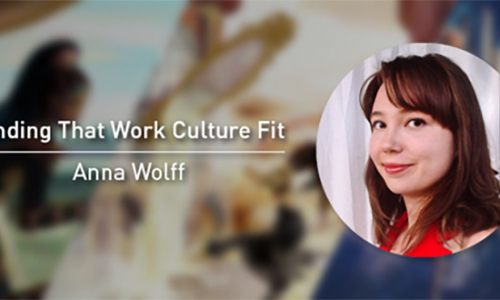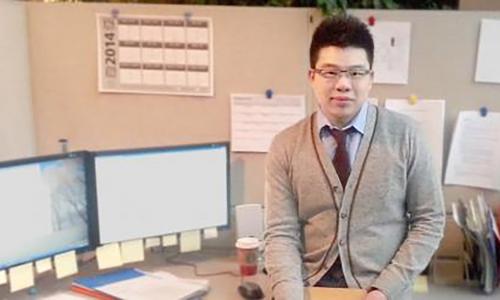
Living abroad has taught me many things I could not learn at home. You meet new people and you learn new things about a culture you think you already know everything about. You also discover the nuances of being a “local” in the city, which you would never learn by being there for two or three days on vacation. For my journey abroad, I am teaching English in a city called Tarragona in the Catalonia region of Spain, which is about one hour South of Barcelona by train. I was lucky enough to find the program through SFU Coop and I applied once I had the opportunity to do so. The experience has been both incredibly rewarding and difficult. There have been many encounters that I have learned from and I can take away as an improvement to myself as a working professional. Most importantly I have learned skills that I can apply to a new job post-graduation. The skills I found I have most improved on are my communicative skills, public speaking skills and time management/ organizational skills.
Communication: A Shakespearean Play
Within the first few days of arriving in Spain, I came to realize how important proper communication truly is. There were times I thought it was difficult to communicate or understand something in my native tongue. After trying to communicate something in my nowhere-near-fluent second language or to someone who does not speak English fluently however, I came to realize how easy communication should be when both parties speak the same language. Things like signing up for a gym membership or a phone contract become a Shakespearean play because of all the hand motions and exaggerated actions being made (if only it were really that elegant). It is a learning process. After some practice speaking in my second language (in this case, Spanish) it has become more natural and thus rewarding to be able to communicate my needs successfully. These experiences have really helped me with my communicative skills. I have learned it is important to give people time to speak and to listen to what they have to say and not assume the rest of their sentence. Clarification is also of prime importance and much more difficult to obtain when a language barrier is present. There have been many repeated questions and sentences while in conversation and sometimes it seems odd to say the same sentence or ask the same question one or two different ways, but it assures the true message is being sent so the correct idea is perceived.
From a teaching perspective though, it can be a little trickier. There may be students who are not entirely committed to learning the new language that is compulsory for them to speak. Also, some become frustrated because they do not fully understand the lesson so they relinquish the effort to listen and choose to talk or sit by themselves during the entire class. I have found that the key to engaging all the students is to be (very) patient with them. Again, it is important to provide the time for the individual to speak and for them to be given a good chance to express their true opinion. An extra second or two made available for an explanation can allow the student to successfully state their point and, most importantly, enjoy the accomplishment of doing so.
Having Fun With Public Speaking
I have become more confident speaking at the front of a class and I have learned what style of speaking I prefer. I found that I prefer to teach as if I am one of the students myself. I like to relate to them and joke with them in order to keep the class light hearted. I also like to try and make it seem as if they are naturally speaking English while having fun instead of being stuck in a high school English class. This strategy is also something which I can use in my future. For example, I can transfer what I know about my style of speaking to a presentation I may have to give during a class in university or in an exercise class at the new gym I may be working at.
Organizing My Time and Work
Although I have learned extensive time management and organization skills from studying at university, I believe I have learned more about it abroad and at work than anywhere else. Getting used to planning lessons, marking conversations, obtaining the necessary photocopies for class, or organizing all the necessary documents, transportation and accommodations for my travels took some time to become accustomed to but now has become normal. Whether I like it or not, class times do not change and there is no way I can get an “extension” to finish my lesson-planning “assignment.” As a teacher, you cannot afford to be unprepared because you have a classroom of students that depend on you. Imagine being stuck in front of a class with nothing prepared and with a classroom of students sitting curiously awaiting the next move when there is not a plan. As I discovered the many different resources available for teaching English, and I mean many, organization has become simpler. There are websites where you can create and modify your own crossword or word search activities or where students can have fun by listening to their favourite English songs while learning the lyrics. Also, after having more experience in the classroom I have gained a better idea of what works and what does not work in the class. As time went by and as I got more used to my role, planning has become easier as I have found ways to create my own activities and I have determined which websites are actually helpful to my work.
All in all, I feel like my experience abroad teaching English has provided me with a great experience. I have been able to improve my skillset and I already know that these skills will be applicable to all styles of work. Communication is necessary in any given job, public speaking opportunities can present themselves at any point in time and time management and organization are necessary if one wants to be successful at any given career. Learning and improving on all these skills abroad provides the added bonus of learning a different culture as well as meeting people and making connections from around the world.
















